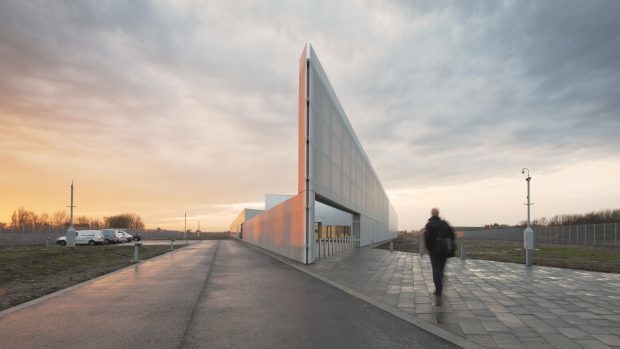UK nuclear records from 17 sites dating back to the 1940s will be on public show for the first time today at a new archive in Caithness.
The Nuclear Decommissioning Authority (NDA) has funded the centre in Wick, close to one of the country’s earliest nuclear research sites at Dounreay.
Around 20 staff are employed at the archive, called Nucleus, which houses nuclear records, with thousands of plans, photographs and 200 tonnes of paperwork due to be transferred from other sites over the next five years.
NDA chief executive John Clarke said: “Across the UK, at over 17 sites, we have accumulated large volumes of important and valuable records, some dating back to the 1940s.
“Now we have Nucleus, we have ensured that this information is accessible, secure, and managed efficiently for the taxpayer.
“At its peak, Dounreay employed more than 3,000 staff and brought a wide range of contracts for local businesses.
“By placing Nucleus in Wick, the NDA is honouring our responsibility to help offset the economic impact of closing down sites that were once major regional employers.”
NDA chairman Stephen Henwood, said: “Today we see a new chapter in the important role Caithness has played in the UK’s nuclear history. For many decades Dounreay was at the forefront of the development of the British, and world, nuclear industry and now Nucleus will see this knowledge protected for future generations.”
Located near one the UK’s earliest nuclear research sites, Dounreay, the archive will have a dual role. As well as housing nuclear records, the facility will contain a collection of local Scottish records that has outgrown its existing home.
Records from Dounreay were the first nuclear collection to arrive. These include almost a third of a million photographs and 200 tonnes of paperwork. The Caithness collection, with records dating back to the 16th century, is already in place.
About 16 miles of shelving has been installed in a series of secure pods to take the material and ensure it is preserved.
It is hoped that, during 2017, Nucleus will be granted Place of Deposit status by the National Archive at Kew, which would make it one of the largest accredited repositories outside of London.
The triangular single-storey building has a large public area, including a reading room and community space for exhibitions, study or training.
The archive will also fulfil an important role for the future geological disposal facility that is being developed for the UK, acting as a central repository for detailed waste records that must be safeguarded for many generations.
